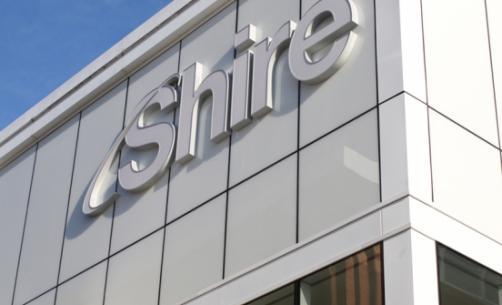
AbbVie ditches Shire as tax deal falters
pharmafile | October 21, 2014 | News story | Manufacturing and Production, Medical Communications, Research and Development, Sales and Marketing | AbbVie, Obama, Shire, US government, tax, tax inversion
Tax rule changes coming from the US government have forced the collapse of a multi-billion dollar deal between Humira manufacturer AbbVie and Irish orphan drug specialist Shire.
This news comes a week after AbbVie’s board was advised not to back the deal which was struck in July.
The firm had planned to buy Shire for an estimated £32 billion ($52 billion), then move the combined company’s legal address to the UK (where it tax rates are lower than the US) in order to reduce its tax bill and access cash ‘trapped’ overseas.
But the US government has taken an exception to such dodges, and the Shire deal came just months after Pfizer had tried to buy AstraZeneca for $118 billion in order to pull off the same tax deal, known in the industry as a ‘tax inversion’.
To combat this, the US Treasury began “reviewing a broad range of authorities for possible administrative action” in order to deter companies from using cross-border deals to escape US taxes.
But beyond this political attacks on these deals have been increasing throughout 2014, and US president Barack Obama has in the past criticised the ‘corporate deserters’ who had ‘renounced their US citizenship’ by moving offshore.
He has also since said that new laws could be put in place to retroactively stop firms who have made such deals over the past few months – and this would have put July’s AbbVie-Shire deal firmly under its crosshairs.
‘Unacceptable risk’
In an email to Pharmafile the company says it decision to stop the deal: “Was based upon its assessment of the September 22, 2014 notice issued by the US Department of Treasury, which re-interpreted longstanding tax principles in a uniquely selective manner designed specifically to destroy the financial benefits of these types of transactions”.
It goes on to say: “The notice introduced an unacceptable level of risk and uncertainty given the magnitude of the proposed changes and the stated intention of the Department of Treasury to continue to revise tax principles to further impact such transactions.“
The firm says that the combined group, which would have been known as ‘New AbbVie’, would have an effective tax rate of just 13% by 2016, dropping from 22% after shifting its tax base from the US. Without this, the deal is simply not attractive enough for the company.
Analysts are also now questioning whether Pfizer will attempt another bid for AZ, given the uncertainty over whether its deal would be barred under new rules.
AbbVie’s chairman and chief executive, Richard Gonzalez, says: “The unprecedented unilateral action by the US Department of Treasury may have destroyed the value in this transaction, but it does not resolve a critical issue facing American businesses today.
“The US tax code is outdated and is putting global US-based companies at a disadvantage to foreign competitors in an area of critical importance, specifically investing in the United States. Comprehensive tax reform is essential to create competitiveness and to stimulate investment in the economy.”
But it’s not all bad news for Shire as it will be entitled to a ‘break fee’ of around $1.6 billion as a result of the deal’s collapse. Shire is based in Ireland – for tax purposes – but has executive offices in Basingstoke, UK.
Humira reliance
But AbbVie was not just seeking a quick tax fix and has been looking to ease its reliance from its auto-inflammatory offering Humira (adalimumab), which is currently the biggest-selling drug in the world after pulling in $10.7 billion in sales last year – and making up 57% of its total sales for 2013.
But Humira will soon began to see its figures drop as biosimilars are already in development, and AbbVie has little in its immediate pipeline to replace these sales.
A deal with a company such as Shire, which produces drugs for ADHD as well as orphan conditions, would have helped shore up its pipeline and broaden its market. AbbVie will now most likely look elsewhere for a new deal, although perhaps one in the US.
Ben Adams
Related Content

Medincell and AbbVie enter agreement for development of next-generation injectables
Medincell and AbbVie have announced that they have entered into a collaboration to co-develop and …

AbbVie to acquire Landos Biopharma for approximately $137.5m
AbbVie and Landos Biopharma have announced that they have entered into a definitive agreement under …

AbbVie and Tentarix collaborate on oncology and immunology treatments
AbbVie and Tentarix Biotherapeutics have announced that they have entered a multi-year collaboration focused on …







